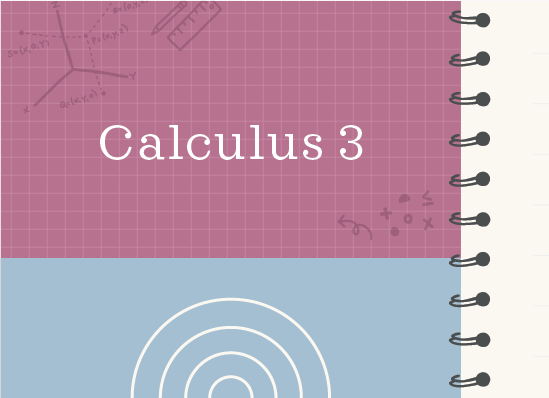Green's theorem for one region
What does Green’s theorem say
Green’s theorem gives us a way to change a line integral into a double integral. If a line integral is particularly difficult to evaluate, then using Green’s theorem to change it to a double integral might be a good way to approach the problem.
Hi! I'm krista.
I create online courses to help you rock your math class. Read more.
If we want to find the area of a simple region, and the original line integral has the form
???\oint_cP\ dx+Q\ dy???
then we can apply Green’s theorem to change the line integral into a double integral in the form
???\int\int_R\left(\frac{\partial{Q}}{\partial{x}}-\frac{\partial{P}}{\partial{y}}\right)\ dA???
where
???\frac{\partial{Q}}{\partial{x}}??? is the partial derivative of ???Q??? with respect to ???x???
???\frac{\partial{P}}{\partial{y}}??? is the partial derivative of ???P??? with respect to ???y???
If we choose to use Green’s theorem and change the line integral to a double integral, we’ll need to find limits of integration for both ???x??? and ???y??? so that we can evaluate the double integral as an iterated integral. Often the limits for ???x??? and ???y??? will be given to us in the problem.
How to use Green’s Theorem to evaluate the integral
Take the course
Want to learn more about Calculus 3? I have a step-by-step course for that. :)
Evaluating a line integral using Green’s theorem
Example
Solve the line integral for the region ???(\pm1,\pm1)???.
???\oint_c\left(2x^2+4y\right)\ dx+\left(x^2-5y^3\right)\ dy???
Since the integral we were given matches the form
???\oint_cP\ dx+Q\ dy???
we know we can use Green’s theorem to change it to
???\int\int_R\left(\frac{\partial{Q}}{\partial{x}}-\frac{\partial{P}}{\partial{y}}\right)\ dA???
We’ll start by finding partial derivatives.
Since ???Q(x,y)=x^2-5y^3???,
???\frac{\partial{Q}}{\partial{x}}=2x???
Since ???P(x,y)=2x^2+4y???,
???\frac{\partial{P}}{\partial{y}}=4???
If we choose to use Green’s theorem and change the line integral to a double integral, we’ll need to find limits of integration for both x and y so that we can evaluate the double integral as an iterated integral.
We were told in the problem that the region would be given by the interval ???(\pm1,\pm1)???. Plugging everything we have into the converted formula, we get
???\int\int_R\left(\frac{\partial{Q}}{\partial{x}}-\frac{\partial{P}}{\partial{y}}\right)\ dA???
???\int_{-1}^1\int_{-1}^12x-4\ dy\ dx???
Integrating with respect to ???y??? and evaluating over the associated interval, we get
???\int_{-1}^12xy-4y\Big|_{y=-1}^{y=1}\ dx???
???\int_{-1}^12x(1)-4(1)-\left[2x(-1)-4(-1)\right]\ dx???
???\int_{-1}^12x-4-\left(-2x+4\right)\ dx???
???\int_{-1}^12x-4+2x-4\ dx???
???\int_{-1}^14x-8\ dx???
Integrating with respect to ???x??? and evaluating over its interval, we get
???2x^2-8x\Big|_{-1}^1???
???2(1)^2-8(1)-\left[2(-1)^2-8(-1)\right]???
???2-8-\left(2+8\right)???
???2-8-2-8???
???-16???
This is the area of the region.






